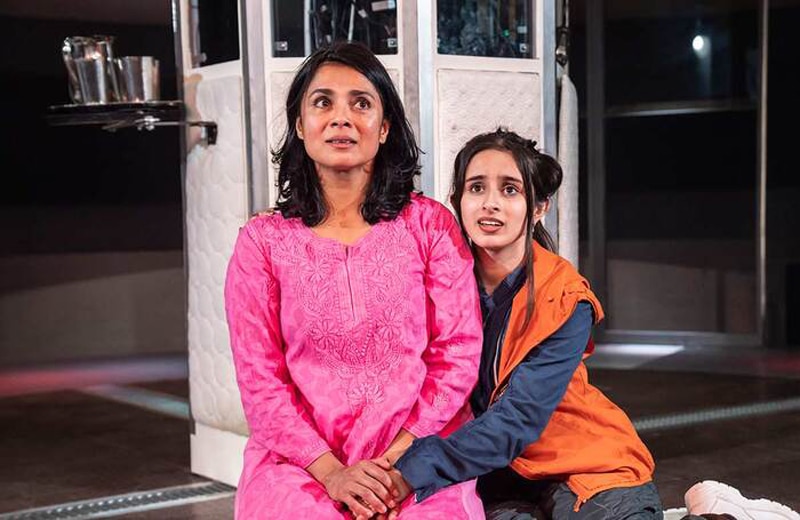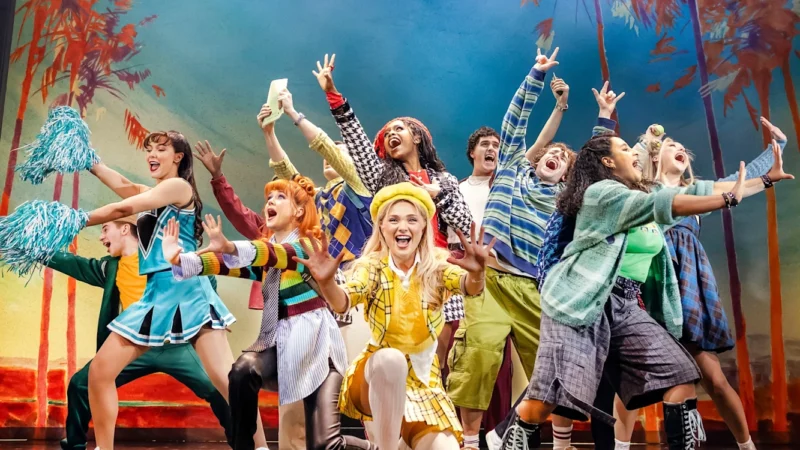The Yard
(In my best Captain kirk voice) “Space; the final frontier”. But a frontier that theatre generally sticks clear off due to budget and practical constraints. It’s a tall task, but a task that Vinay Patel’s new reimagining of Anton Chekhov’s The Cherry Orchard laughs in the face of, perhaps foolhardily.
Written originally in 1904, the play is his last and one of the big four. Set in the failing light of the old aristocracy of Russia, issues of class, history, modernity, freedom, and space are all touched on in classic Chekhovian prose. Issues not alien (see what I did there?) to the themes of the colonising-space ship yarn. So far so good.
Let’s stay on the good, shall we? Patel is a dexterous writer, mounting such a difficult uphill battle is commendable indeed. He reimagines the characters of the play and throws them out into the void with this very loose reimagining. He creates a revivifying South Asian take on the normally pasty-pale sci-fi population, flipping the script (quite literally) on the historically white-dominated genre. The senselessness and inactivity of the Russian characters and the rigid social strata are recreated at points effectively onboard the spaceship. As the ruling family protects the upper reaches and arboretum (with the eponymous cherry trees in it) from the working class “downdeckers”. The idea is fascinating and has much potential.
Continuing in this vein for a medium-sized fringe theatre Rosie Elnile’s slowly revolving Tardis-like set is detailed and beautiful. Along with her elegantly futuristic costumes, she clothes (with the help of Max Pappenheim’s clanking galactic sound design) the dilapidated ship’s aging grandeur brilliantly. We do believe we are humanities last hope, racing through the blackness on a intergenerational journey to a habitable world.
Moments of characters peering out into the orchard through slow-moving portholes frame the action and belie the real size of the stage. This circular set has all the feel of the contemporary Doctor Who not the 70s wheelie-bin heavy version (thankfully).
However (and possibly unfairly) the directors and actors have a dominating effect on most pieces, and this is no exception. The Cherry Orchard is a long play. Adding in all the elements of space travel: robot-human relationships, possible home planets, endless technical jargon, and cloning on top of the themes already mentioned asks a lot of all involved. James Macdonald’s directing feels rushed as he tries to condense all this into (just under) 3 hours of theatre. Therefore, a lot of moments that require space (haha) silence, and time are denied them. Although some delightful details stand out, they are whisked into the airlock before they have time to become anything. This undercuts a lot of the acting work in the process.
Speaking of acting, we hit more solar wind on that front. An exploding nebula, Tripti Tripuraneni’s performance as Varsha (Varya in the Russian version) is a saving grace. Holding the ship together as her mother and sister wallow in memory and love she is a tough, confident talent that warms up the frosty script. Along with her, Hari Mackinnon as the hilarious robot servant Feroze (Firs) is unwavering in his rigid movements and comedic timing. Think Ce3po (having seen better days) in a black suit. His performance is one of the rare moments where the play’s written comedy lands as it should.
Anjali Jay as Captain Prema Ramesh (Madame Lyubov Andreievna Ranevskaya) is the matriarch and the glue that holds the story together. Although hitting the grief of her lost son well she never quite gets the timing right in the group scenes. Maanuv Thiara as Abinash Lenka (Yermolai Alexeievitch Lopakhin) equally feels uncomfortable with the character; despite possessing the meaty part of at first ally of the family and then reluctant supplanter of the “upperdeckers” power. Other comedic character subplots seem to be relegated by the need for brevity and therefore come across as stunted. Also, the two failed and one successful love stories are lost in the mist of attempted overachievement. This can be laid more squarely at Patel and Macdonald’s feet.
Despite a stratospheric concept and some gleaming performances, and even with a burst of unique cultural reworking the play never quite gets into orbit. The second act particularly tries to stuff so much in that we start losing the sense of what is happening. The characters in the Russian version are paralysed by their inequalities while in this case they are overwhelmed by the sheer volume of themes and plot points required of them. Although as a writer I do love any chance at peppering my work with terrible shuttle-based puns, in this instant the play crash lands, weight down by its own ambition. The ending lacks the needed urgency or poetry to pull of the final coup de grâce.
Check out what out-of-this-world new work is on at the Yard next, click here!



